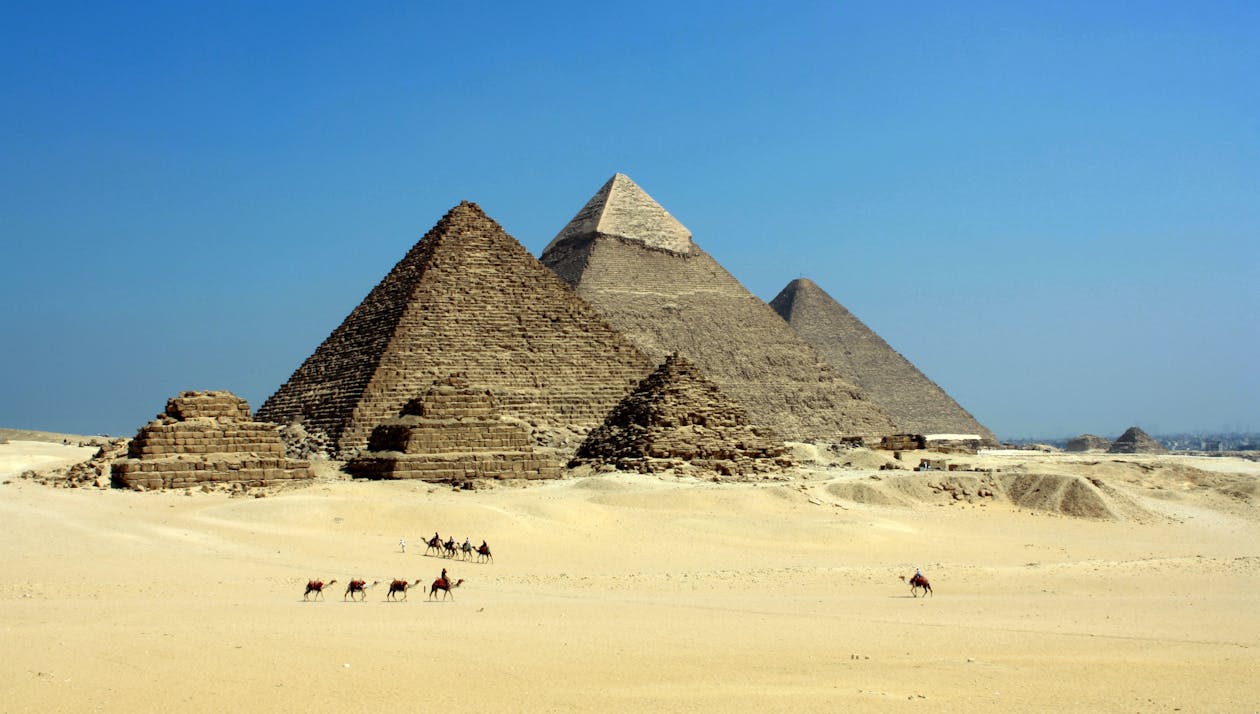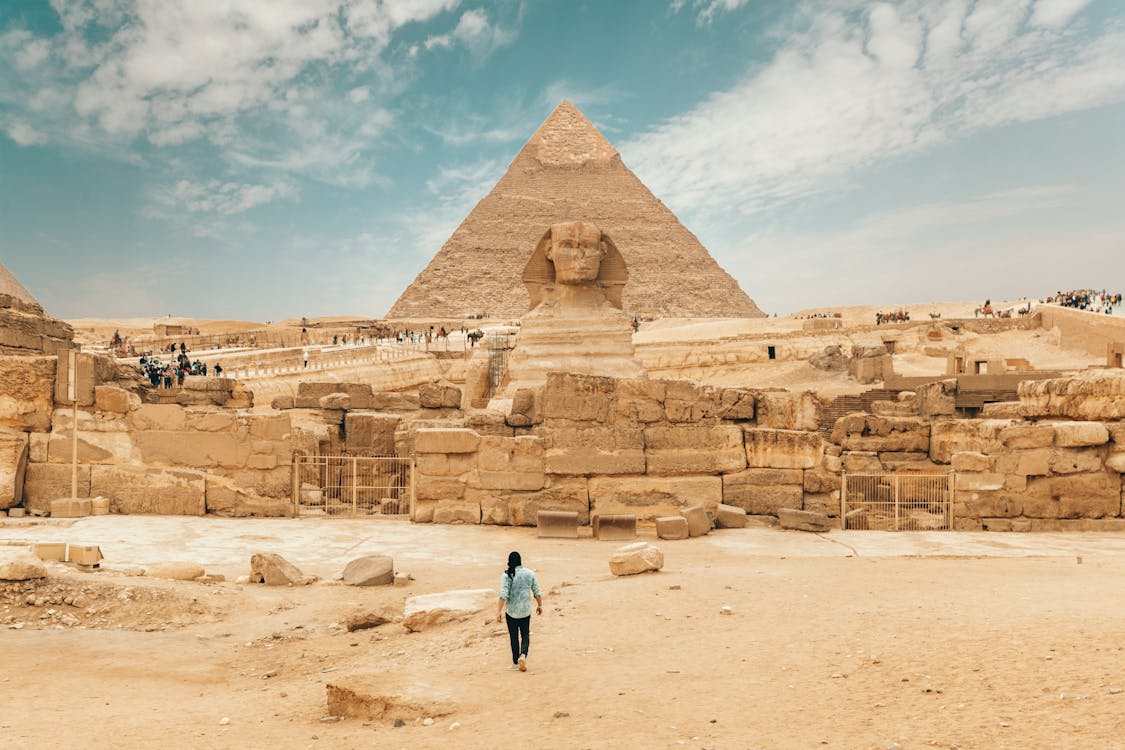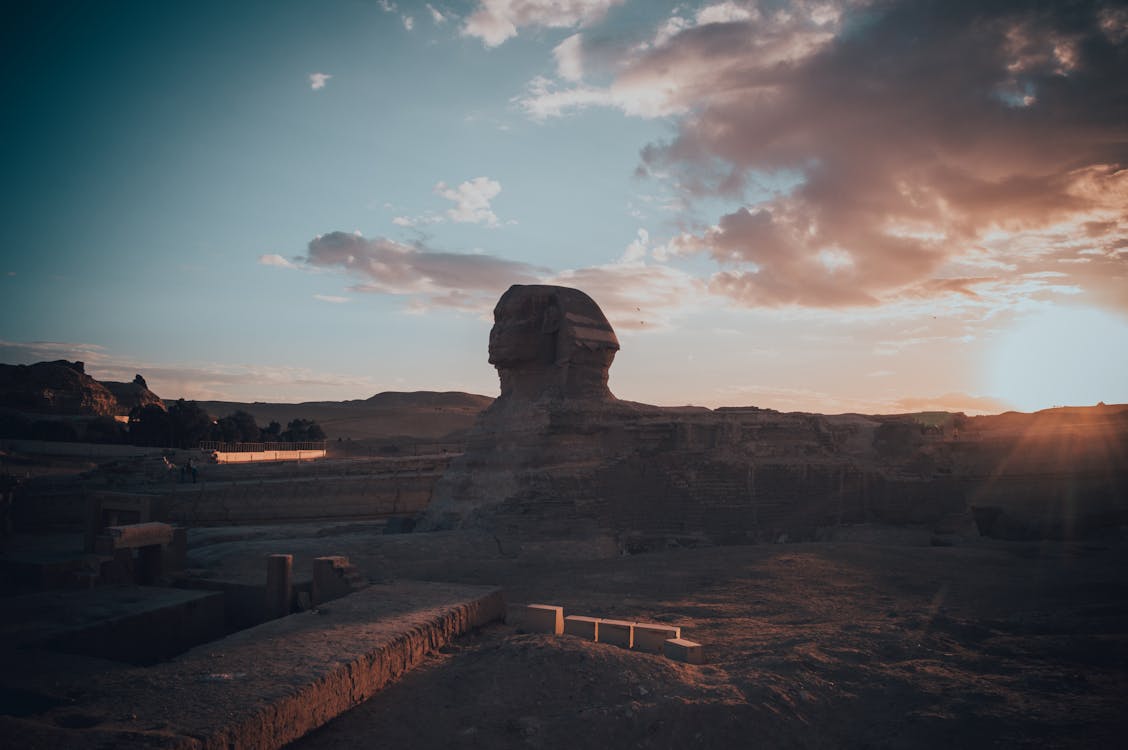Egypt Travel Itinerary
Egypt Travel Itinerary
Traveling to Egypt is an extraordinary experience filled with ancient wonders, vibrant culture, and breathtaking landscapes. Crafting a travel itinerary is essential for maximizing your time and ensuring a smooth journey through this fascinating destination. This itinerary serves as a detailed guide, offering insights into must-see attractions, practical tips for navigating Egypt's unique landscape, and recommendations for immersing yourself in its rich history and culture.
Day 1: Arrival in Cairo |
|---|
|
Arrive at Cairo International Airport, where you'll be greeted by your guide or driver who will assist with immigration procedures and baggage claim. |
|
Transfer to your hotel in Cairo, located in the heart of the city or near the iconic landmarks. |
|
Check-in and freshen up before beginning your exploration of Cairo. |
Day 2: Cairo - Pyramids of Giza and Egyptian Museum |
|---|
|
Start your day early to beat the crowds and witness the sunrise over the Pyramids of Giza, an awe-inspiring sight. |
|
Explore the Great Pyramid, the largest of the three pyramids, and learn about the fascinating engineering behind these ancient marvels. |
|
Visit the Sphinx, an iconic symbol of ancient Egypt, and marvel at its mysterious aura. |
|
Afterward, head to the Egyptian Museum, home to over 120,000 artifacts including the treasures of King Tutankhamun, royal mummies, and ancient statues. |
|
Take a guided tour of the museum to gain insights into Egypt's rich history and civilization. |

Day 3: Cairo - Islamic Cairo and Coptic Cairo |
|---|
|
Immerse yourself in the rich cultural heritage of Cairo by exploring Islamic Cairo, characterized by its narrow streets, medieval architecture, and historic mosques. |
|
Visit the Citadel of Saladin, an impressive fortress built in the 12th century, offering panoramic views of the city. |
|
Explore Al-Azhar Mosque, one of the oldest mosques in Cairo, and soak in its serene atmosphere. |
|
Wander through the bustling Khan El Khalili market, where you can shop for souvenirs, spices, and local handicrafts. |
|
In the afternoon, discover Coptic Cairo, home to some of the oldest Christian churches in Egypt. |
|
Visit the Hanging Church, built atop the Roman fortress of Babylon, and admire its beautiful Coptic architecture. |
|
Explore the Church of St. Sergius and Bacchus, believed to be the site where the Holy Family sought refuge during their flight into Egypt. |
|
Conclude your day with a traditional Egyptian meal at a local restaurant, where you can savor authentic dishes such as koshari, falafel, and stuffed vine leaves. |
Day 4: Luxor - East Bank |
|---|
|
Fly to Luxor, often referred to as the "world's greatest open-air museum," due to its wealth of ancient monuments. |
|
Check-in to your hotel and embark on a guided tour of Luxor's East Bank. |
|
Visit the Karnak Temple Complex, the largest ancient religious site in the world, dedicated to the god Amun. |
|
Explore the Luxor Temple, an atmospheric temple complex dating back to the New Kingdom period, and admire its impressive statues, obelisks, and hieroglyphic inscriptions. |
|
Enjoy an evening stroll along the vibrant waterfront promenade of Luxor, dotted with cafes, shops, and street vendors. |
Day 5: Luxor - West Bank |
|---|
|
Venture to Luxor's West Bank, known for its necropolis and mortuary temples. |
|
Explore the Valley of the Kings, where ancient pharaohs were buried in elaborately decorated tombs. |
|
Visit the Tomb of Tutankhamun, discovered by Howard Carter in 1922, and marvel at its exquisite treasures and artifacts. |
|
Continue to the Temple of Hatshepsut, a monumental funerary temple dedicated to Queen Hatshepsut, one of ancient Egypt's most powerful female rulers. |
|
Explore the Colossi of Memnon, two massive statues representing Pharaoh Amenhotep III, and learn about their significance in ancient Egyptian religion and mythology. |

Day 6: Aswan |
|---|
|
Travel to Aswan, a picturesque city located on the banks of the Nile River, renowned for its natural beauty and ancient monuments. |
|
Check-in to your hotel and embark on a guided tour of Aswan's highlights. |
|
Visit the High Dam, an impressive feat of modern engineering that regulates the flow of the Nile River and provides hydroelectric power to Egypt. |
|
Explore the Philae Temple, dedicated to the goddess Isis and situated on the picturesque island of Philae. |
|
Enjoy a leisurely felucca ride on the Nile River, where you can relax and take in the scenic views of Aswan's riverfront and surrounding islands. |
Day 7: Abu Simbel |
|---|
|
Take a day trip to Abu Simbel, a UNESCO World Heritage Site located on the shores of Lake Nasser. |
|
Marvel at the colossal temples of Ramses II and Nefertari, carved into the cliffs during the 13th century BC. |
|
Explore the interior chambers of the temples, adorned with intricate carvings, hieroglyphs, and vibrant murals depicting scenes from ancient Egyptian mythology and history. |
|
Afterward, return to Aswan and spend your evening relaxing at your hotel or exploring the local markets and souks. |

Day 8: Departure |
|---|
|
Transfer to Aswan International Airport for your departure flight, marking the end of your unforgettable journey through Egypt. |
Reminders:
-
Visa: Ensure you have obtained the necessary visa for entry into Egypt before your departure. Visas can be obtained upon arrival at Cairo International Airport or through the Egyptian consulate or embassy in your home country.
-
Currency: The official currency of Egypt is the Egyptian Pound (EGP). It is recommended to exchange currency at banks or authorized exchange offices for the best rates.
-
Climate: Egypt has a desert climate, characterized by hot summers and mild winters. Be sure to pack lightweight and breathable clothing, sunscreen, sunglasses, and a hat to protect yourself from the sun.
-
Health: Drink plenty of bottled water to stay hydrated, especially during hot weather and while exploring outdoor sites. It's also advisable to carry any necessary medications and consult your healthcare provider before traveling to Egypt.
-
Respect: Respect local customs and traditions, especially when visiting religious sites and interacting with locals. Dress modestly when visiting mosques, churches, and other religious sites, covering your shoulders and knees.
-
Safety: Egypt is generally safe for tourists, but it's essential to remain vigilant and aware of your surroundings, especially in crowded areas and tourist sites. Follow any travel advisories issued by your government and exercise caution when using public transportation or exploring unfamiliar areas.
-
Photography: Respect regulations regarding photography at archaeological sites and museums. Some sites may charge a fee for photography, and flash photography may be prohibited in certain areas to preserve ancient artifacts and monuments.
-
Electricity: Egypt uses 220V, 50Hz electrical outlets with two-pin plugs. Be sure to bring a universal adapter if your devices require a different type of plug.
By following this comprehensive travel itinerary, you'll embark on a journey through Egypt's ancient wonders, cultural treasures, and scenic landscapes, ensuring a memorable and enriching experience in this captivating destination.